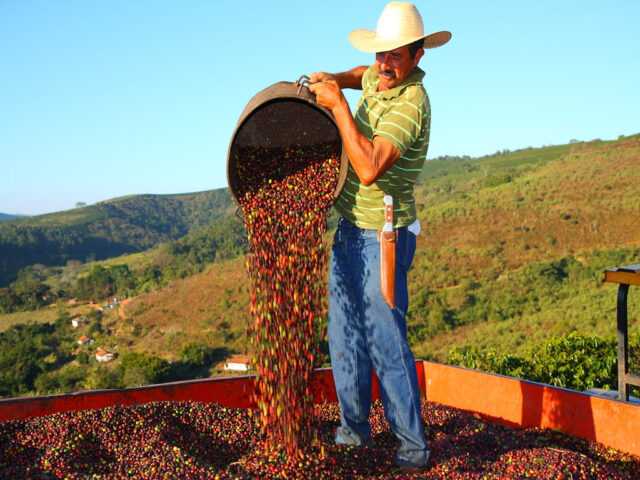SAO PAULO, Brazil – The rains that hit Brazil in the first fortnight of February were positive to coffee crops (Arabica and Robusta) in the main producing regions, favoring the beans-filling stage, says Cepea in its new report. Although precipitation was high in some locations, until the end of the fortnight, the agents consulted by Cepea had not reported significant damages to crops.
Thus, the 2020/21 crop is expected to have a high number of large-sized beans (bigger screen) and good yield at processing.
The rainy weather also accelerated crops development. Thus, many agents already expect the harvesting to start slightly earlier than it did last year – between late March and early April for robusta and between late April and early May for arabica.
However, it is worth to mention that the weather in the coming months should determine the beginning of fieldwork – if temperatures are lower and rains continue high during the maturation stage of crops, the harvesting may start at the usual time.
Coffee market in Brazil
The trading pace for coffee was slow in the Brazilian spot market in the first fortnight of February. As prices dropped in January – primarily for arabica –, growers left the market. Besides, many of them have no cash flow needs, due to the deals closed until December at higher price levels.
Thus, trades were being closed according to purchasers’ needs, and some deals were closed at higher price levels – or between exporters.
Prices
After having reached, in December 2019, the highest real levels since 2017, arabica coffee prices dropped sharply in January and continued to decrease – not as sharply – in the first fortnight of February. Price drops in Brazil were linked to the steep devaluation of the future contracts for arabica coffee at ICE Futures (New York).
International price drops, in turn, were influenced by technical factors, the US dollar appreciation and commodities devaluations, due to concerns about the economic effects of coronavirus. Perspectives for higher supply in Brazil in 2020 also influenced Futures devaluations.
First estimates for the 2020/21 crop in Brazil point to a large output. According to Conab (National Company for Food Supply), the Brazilian coffee production should range from 57.2 to 62 million bags, from 15 to 26% up compared to that in 2019/20. It is worth to mention that other estimates indicate up to 67 million bags.
Between February 3 and 14, the CEPEA/ESALQ Index for arabica coffee type 6 (delivered in São Paulo) averaged 466.73 BRL per 60-kilo bag, 78.44 Reais per 60-kilo bag less (or 14.4% down) compared to that in the first fortnight of January/20 (545.17 BRL/bag).
Robusta
Opposite to the behavior of arabica coffee prices, robusta quotes increased in the first half of February. The CEPEA/ESALQ Index for the type 6, screen 13, Espírito Santo State, averaged 306.08 BRL per 60-kilo bag in the first fortnight of the month, 1.7% up (or 5.35 Reais/bag) compared to that in the same period of January/20.
















